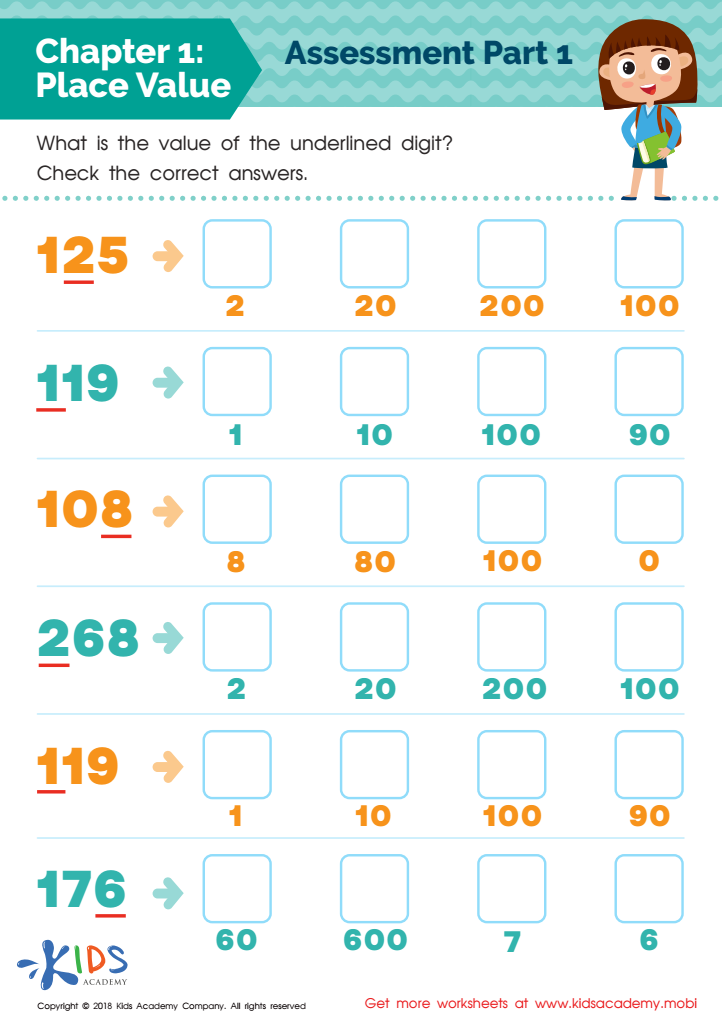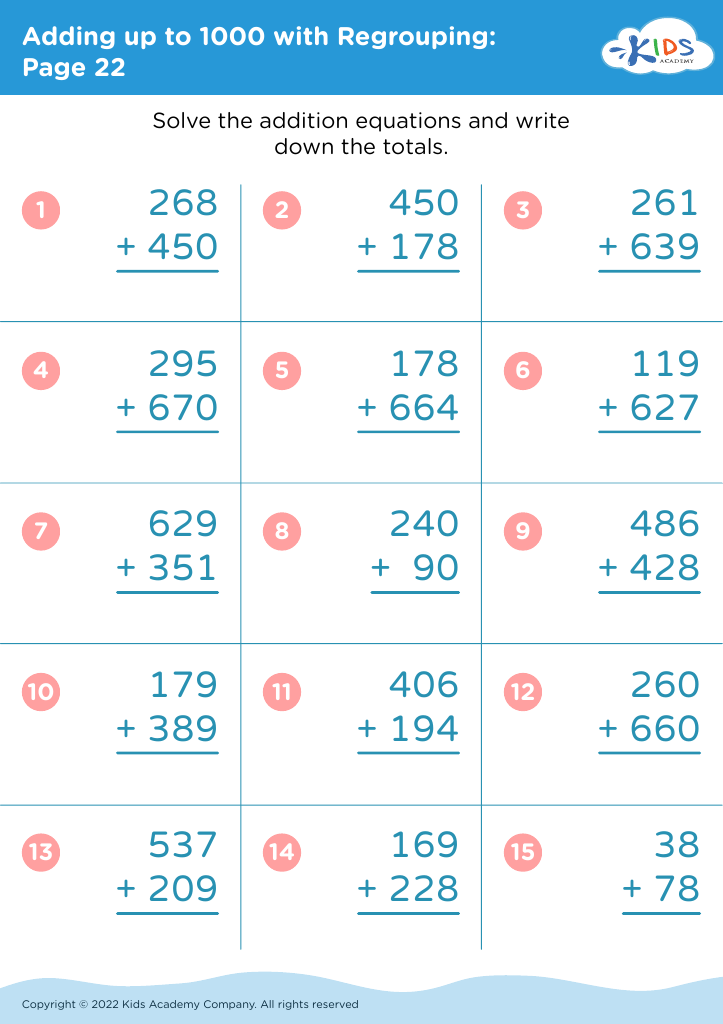Identify numbers Math Worksheets for Ages 7-8
3 filtered results
-
From - To
Explore our engaging "Identify Numbers Math Worksheets" designed specifically for ages 7-8! These worksheets help young learners sharpen their number recognition skills through fun and interactive activities. With a variety of exciting exercises, children will identify, match, and categorize numbers, laying a solid foundation for more advanced math concepts. Our resources cater to different learning styles, ensuring that every child finds joy in mastering numbers. Ideal for both classroom and at-home learning, our worksheets make it easy for parents and teachers to track progress. Begin your child's math journey today with our thoughtfully crafted worksheets that promote confidence and understanding in numbers!


Place Value: Chapter 1 Worksheet
Identifying numbers is a fundamental math skill for children aged 7-8, laying the groundwork for more advanced mathematical concepts. At this developmental stage, children are beginning to explore number relationships and properties, which are essential for their understanding of addition, subtraction, and even multiplication. Teachers and parents should care about this skill because it contributes significantly to a child's overall confidence in math.
When children can easily identify and manipulate numbers, they develop logical thinking and critical problem-solving skills, both vital for academic success. Mastery of numbers enhances a child’s ability to engage in everyday situations, from telling time to managing money, making math a practical life skill.
Furthermore, early interventions and support can identify and address any difficulties a child may have with number recognition. By fostering an encouraging environment that promotes curiosity and problem-solving, adults can help build a positive attitude toward mathematics, reducing the anxiety many students face later on.
Finally, reinforcing number identification in fun and interactive ways—such as games, visual aids, and real-life applications—can make learning engaging, ensuring that children remain motivated and develop a lifelong love for math. Ultimately, strong numerical skills empower children to succeed academically and personally.
 Assign to My Students
Assign to My Students


















